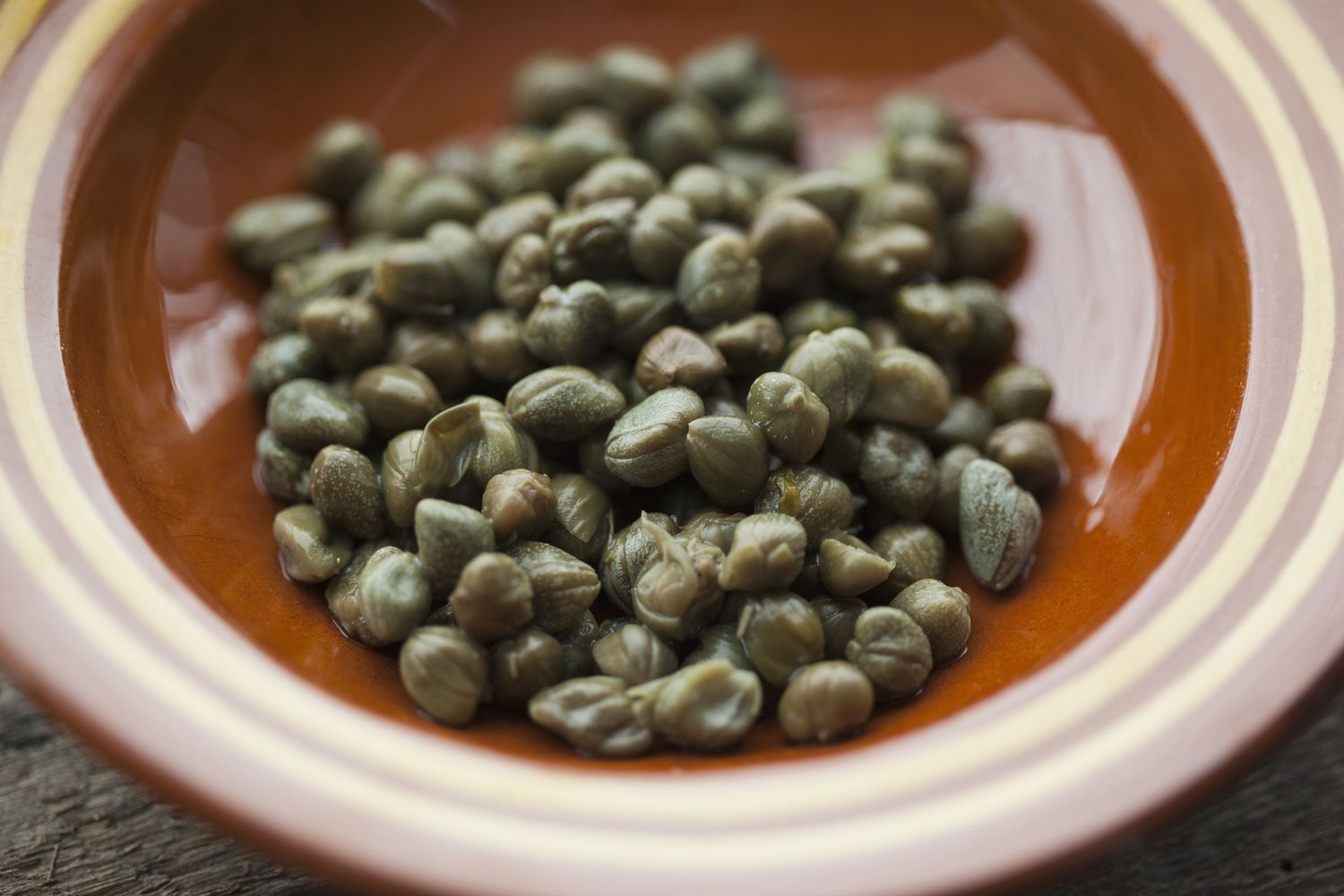
Ever wondered what makes capers such a unique addition to your meals? Capers are not just tiny green buds that add a burst of flavor; they pack a punch in the nutrition department too. These little wonders come from the caper bush, often found in Mediterranean cuisine. But what exactly makes them so special? Capers are rich in antioxidants, vitamins, and minerals, making them a healthy choice for your diet. They also contain quercetin, a powerful antioxidant that helps fight inflammation. Whether sprinkled on a salad or added to a pasta dish, capers offer both taste and health benefits. Ready to learn more? Let's dive into 14 amazing caper nutrition facts that will make you appreciate these tiny buds even more!
What Are Capers?
Capers are small, green flower buds often used in Mediterranean cuisine. They pack a punch of flavor and are known for their tangy, salty taste. But did you know they also offer several nutritional benefits?
Nutritional Content of Capers
Capers might be tiny, but they are loaded with nutrients. Let's dive into some fascinating facts about their nutritional value.
-
Low in Calories: Capers are incredibly low in calories, making them a great addition to any diet. A tablespoon of capers contains only about 2 calories.
-
Rich in Antioxidants: These little buds are packed with antioxidants, which help fight free radicals in the body. This can reduce the risk of chronic diseases.
-
High in Sodium: Capers are preserved in brine, which makes them high in sodium. One tablespoon contains about 250 milligrams of sodium, so it's best to consume them in moderation.
-
Source of Vitamin K: Capers provide a good amount of Vitamin K, essential for blood clotting and bone health. One tablespoon offers about 9% of the daily recommended intake.
-
Contain Quercetin: This flavonoid found in capers has anti-inflammatory and antiviral properties. It can help reduce allergy symptoms and improve heart health.
Health Benefits of Capers
Beyond their nutritional content, capers offer several health benefits. Here are some reasons to include them in your diet.
-
Aid in Digestion: Capers contain fiber, which helps promote healthy digestion. Fiber can prevent constipation and improve overall gut health.
-
Support Heart Health: The antioxidants and flavonoids in capers can help lower blood pressure and reduce the risk of heart disease.
-
Anti-Inflammatory Properties: Capers have compounds that can reduce inflammation in the body, which is beneficial for conditions like arthritis.
-
Boost Immunity: The vitamins and antioxidants in capers can strengthen the immune system, helping the body fight off infections.
Culinary Uses of Capers
Capers are not just nutritious; they are also versatile in the kitchen. Here are some interesting ways to use them in your meals.
-
Enhance Flavor: Capers add a burst of flavor to dishes like pasta, salads, and sauces. Their tangy taste can elevate any meal.
-
Garnish for Fish: They are commonly used as a garnish for fish dishes, especially in Mediterranean cuisine. They pair well with salmon, tuna, and cod.
-
In Tapenade: Capers are a key ingredient in tapenade, a spread made from olives, anchovies, and olive oil. It's perfect for spreading on bread or crackers.
-
In Salad Dressings: Adding capers to salad dressings can give them a unique, zesty flavor. They work well in vinaigrettes and creamy dressings.
Fun Facts About Capers
Capers have a rich history and some interesting trivia associated with them. Here are a few fun facts to wrap up our list.
Final Thoughts on Caper Nutrition
Capers pack a punch when it comes to nutrition. These tiny buds are loaded with antioxidants, vitamins, and minerals that can boost your health. They’re low in calories but high in flavor, making them a great addition to many dishes. Capers can help improve digestion, support heart health, and even have anti-inflammatory properties. Plus, they’re a good source of fiber, which is essential for a healthy gut.
Adding capers to your diet is simple. Toss them in salads, mix them into pasta, or use them as a garnish for meats and fish. Their tangy, salty taste can elevate any meal. So next time you’re looking for a way to enhance your dishes while also getting some health benefits, don’t forget about capers. They’re small but mighty, proving that good things really do come in small packages.
Was this page helpful?
Our commitment to delivering trustworthy and engaging content is at the heart of what we do. Each fact on our site is contributed by real users like you, bringing a wealth of diverse insights and information. To ensure the highest standards of accuracy and reliability, our dedicated editors meticulously review each submission. This process guarantees that the facts we share are not only fascinating but also credible. Trust in our commitment to quality and authenticity as you explore and learn with us.


